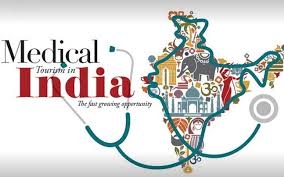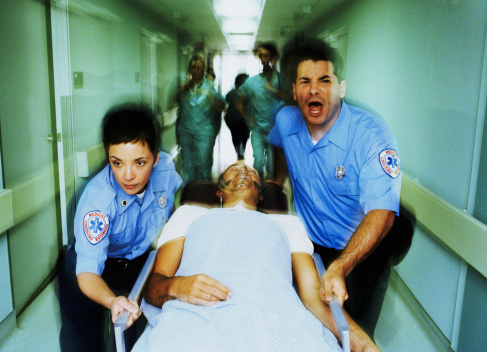
 As hospitals are moving towards adopting a more holistic approach towards their operations, care and cure have become two sides of the same coin. While cure is what patients come for in a hospital, ultimately, it is the care that catalyses quicker recovery, says Belinda Sawant, Head-Nursing Services at Saifee Hospital.
As hospitals are moving towards adopting a more holistic approach towards their operations, care and cure have become two sides of the same coin. While cure is what patients come for in a hospital, ultimately, it is the care that catalyses quicker recovery, says Belinda Sawant, Head-Nursing Services at Saifee Hospital.

In recent years, patient satisfaction has become a significant barometer for the hospitals calibre. Patient satisfaction is determined by the patients experience. Hence, creating an optimal patient experience is of high importance to healthcare providers.
To this effect, nurses play a pivotal role in ensuring patient satisfaction, as they are the primary care-providers and nurturers throughout a patients stay in the hospital. Working on a code of ethics and pledging care, commitment and devotion to the vocation, this is the essence of nursing, and is the basic factor that distinguishes nurses from other healthcare professionals.
Studies have revealed that caring behaviour, in addition to other qualities such as sensitivity, comfort, attentive listening, and honesty are correlated to well-being of a patient, and help them cope better with post-operation trauma.

When a patient is admitted to the hospital, a surgeon always ensures that he is well informed about the technicalities involved. However, irrespective of this information, he is bound to experience feelings of fear and apprehension. Through their caring demeanour, nurses address these concerns throughout the perioperative phases “ pre, intra and post-operative period.
Through good communication, at all stages of the patients surgical experience, nurses have helped hospitals achieve high standards of patient care.
The preoperative phase
The preoperative phase is when the patient is physically and psychologically prepared for the surgery. During this stage, nurses reiterate and reassure the patient and family members about the surgical procedures, the need for physical preparation and investigations, preoperative teaching, viz, exercises; and thereby alleviate anxiety through attentive listening and comforting communication.
Such nursing competencies attribute to better surgical outcomes by enhancing effective coping mechanisms and alleviating patients fear and anxiety. Cultural assessment and spiritual considerations are equally important in optimising patient comfort.
The intraoperative period
During the intraoperative period nurses take on the role while the patient is under anesthesia. This is sought by implementing safe patient practices through use of Surgical Safety Checklist (SSC) and Surgical Site Infection Prevention bundle (SSIP). Surgical safety checklist ensures that the right patient undergoes the right surgical procedure, with use of right resources. The SSIP bundle, furthermore, ensures better clinical outcomes through infection control practices.
Postoperative care
Postoperative care is most necessary and crucial for patients. The immediate postoperative period (IPO) includes first 24-hours after the surgery when the patient remains in the post-anesthetic care unit (PACU) or transferred to the ward on reversal of anesthesia.
During this period nurses observe and tend to physiological changes, characterised by unconsciousness and cardiorespiratory depression with an imbalance in emotional states due to the after-effects of anaesthetics; specific care and continuous observation at this stage become indispensable. Nurses also offer counselling to patients and help ease their way back in to their routine lives. This extends to families to sensitise them and become more aware of possible lifestyle changes and how to cope with them. Nurses also play a motivational role by equipping patients with self-management skills and improving their overall post-surgery attitude.
Patients in IPO stage are considered to be critical. Nurses who are responsible for IPO care need to be highly qualified, experienced and equipped with necessary knowledge and skills so that complex medical situations can be handled with expertise, diligence and personalised care-giving. With increasing numbers of patients being transferred to the PACU, the nursing care procedures need to be charted in an organised and dynamic manner.
It becomes imperative for nurses to not only develop interpersonal skills, but also elevate their cognitive and technical competencies in order to meet the needs of various patients with respective surgical conditions. Therefore, emotional strength and personal development needs to be enhanced during training procedures so as to be able to handle the extreme stressful environments and ensure mindfulness constantly.
Caring behaviour plays a pivotal role in creating a sense of belongingness, a sense of security, and a mutual bond between the nurse and the patient, which consequently enhance patient satisfaction. In view of the fact that nurses spend maximum time during the perioperative period with the patients, the perceived quality of interactions is in direct correlation with the level of patient satisfaction.
Going beyond their supportive role to patients, nurses also assist doctors at various stages of an operative procedure. In the OT, nurses are responsible for ensuring use of sterile instruments, accounting for surgical tools and preparing samples taken from the patient for testing, preparing the patient for the operation, disposing medical waste and maintaining overall sterility.
Nurses assist in suturing and surgical dressing; supervise transfer of the patients to the post anaesthetic care unit (PACU), where they monitor their medical condition until the anaesthesia fades off. Monitoring patients vital signs such as heart rate, respiration, feeding antibiotics and tending to infections are also a part of the support offered to doctors by nurses.
For hospitals, patient satisfaction is an essential component in promoting health and wellbeing of patients.There are various factors that ascertain this grade of whichinevitably depends on the quality of healthcare services provided by the hospital.These include nursing care involving effective and continuous communication or interaction, apart from hospital stay and recovery.
Despite other indicators being taken into account when rating a hospital, patient satisfaction index has been a guiding factor to indicate the quality and efficiency of health care systems, making nursing one of the most elementary and critical vocational careers in the healthcare ecosystem.
Be a part of Elets Collaborative Initiatives. Join Us for Upcoming Events and explore business opportunities. Like us on Facebook , connect with us on LinkedIn and follow us on Twitter , Instagram.












